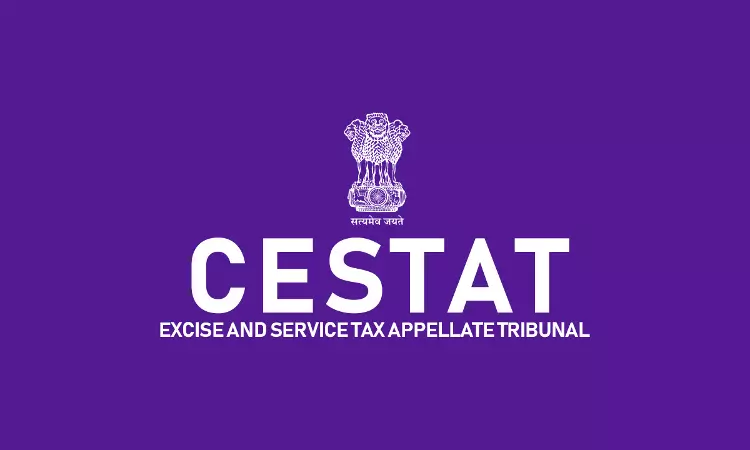Customs Act | Electronic Evidence From Unsealed CPU Without Certificate U/S 139C Cannot Form Basis Of Assessment: CESTAT
Mehak Dhiman
6 Nov 2025 6:17 PM IST
The New Delhi Bench of Customs, Excise, and Service Tax Appellate Tribunal (CESTAT) has stated that electronic evidence from an unsealed CPU without any Section 139C certificate under the Customs Act cannot form the basis of assessment. Dr. Rachna Gupta (Judicial Member) and P.V. Subba Rao (Technical Member) opined that the computer/ CPU was not sealed at the time of panchnama and...
The New Delhi Bench of Customs, Excise, and Service Tax Appellate Tribunal (CESTAT) has stated that electronic evidence from an unsealed CPU without any Section 139C certificate under the Customs Act cannot form the basis of assessment.
Dr. Rachna Gupta (Judicial Member) and P.V. Subba Rao (Technical Member) opined that the computer/ CPU was not sealed at the time of panchnama and was lying with the investigating agency for 47 days, after which it was first examined and then sealed, which raises questions about the authenticity of the data.
In this case, the assessee/appellant (importer) imported artificial flowers from China during the period 2002-2006 and filed Bills of Entry declaring the invoice values in them.
During the relevant period, assessment had to be done only by the proper officer, and there was no scope for self-assessment by the importers. The value of the goods under section 14 was to be the price at which such goods were ordinarily sold in the course of international trade.
In other words, before the amendment to section 14 in 2007, valuation had to be done not based on the price at which such goods were bought in that particular case but based on the price at which such goods were ordinarily sold.
The proper officer assessing the Bills of Entry had rejected the declared value of the assessee and enhanced the values US$ 1.46 per kg uniformly in all Bills of Entry.
The proper officer had enhanced the values based on the prices at which such goods were ordinarily sold in the course of international trade during the relevant period. The assessee paid duty as per the enhanced values.
Later, DRI initiated an investigation into the assessee and came to the conclusion that the assessee had undervalued the goods and that the real values were found in the CPU of the computer seized from the assessee. Two CPUs were seized by DRI under a panchnama. These were, however, not examined or sealed at the time of seizure.
The case of the Revenue is that when there was a parallel set of invoices under which the importers had imported the goods at much higher values, which should form the basis of assessment. Therefore, the invoices said to have been obtained by forensically examining the CPU seized during panchanma were adopted to re-determine the duty.
According to the assessee, the invoices cannot be relied upon for the reason that the CPU was not sealed at all at the time of panchnama and was only sealed after 47 days by the DRI. It was also argued that the certificate, as per section 139C of the Act, was not issued, and, therefore, the electronic evidence recovered from the CPUs cannot be relied upon.
The Tribunal stated that, evidently, the data was retrieved from the CPU through forensic analysis by DRI. Even if some emails of the importers had been downloaded and saved in the CPU, which were then retrieved during the forensic analysis, they were not downloaded from the server of Gmail or any email service provider. The data was printed out of the seized CPU. In such a case, section 139C of the Act will be applicable.
Regarding the values of the imported goods, the Tribunal opined that an Assessment had to be done during the relevant period based on the values at which such goods were ordinarily sold in the course of international trade. In other words, contemporaneous values of imports formed the basis for the determination of value during the relevant period. Such values are available in this case, as per which the proper officer had assessed the Bills of Entry.
The bench found that the redetermination of the value by the adjudicating authority based on the values retrieved by DRI from the CPU seized during panchnama cannot be sustained. Consequently, the demand for differential duty cannot be sustained.
In view of the above, the Tribunal allowed the appeal.
Case Title: KDS Exports v. Commissioner of Customs (ICD) New Delhi
Case Number: CUSTOMS APPEAL NO. 57 OF 2009
Counsel for Appellant/ Assessee: Dr. Seema Jain and Shri Vimlesh Kumar
Counsel for Respondent/ Department: Shri Rakesh Kumar



